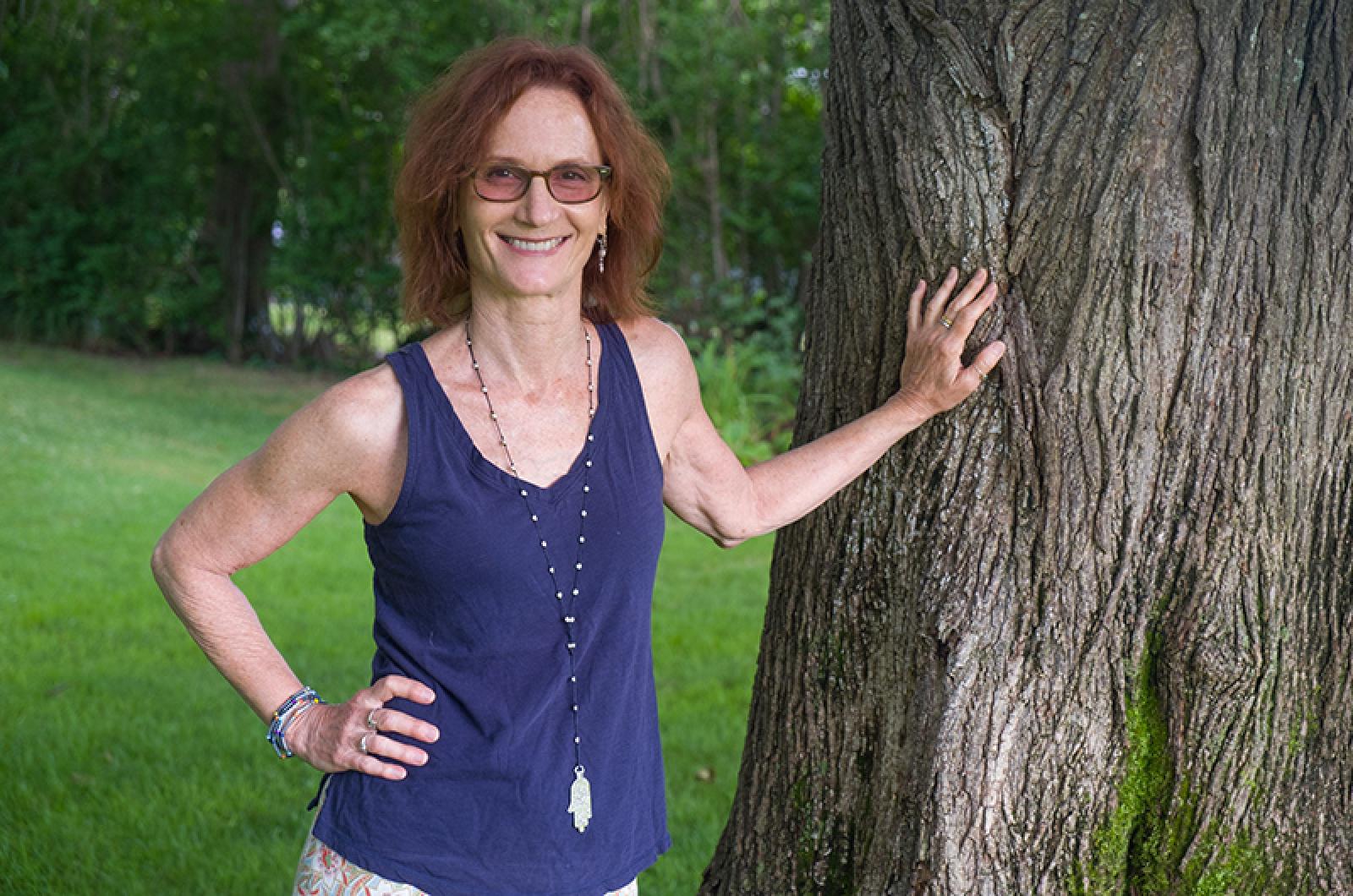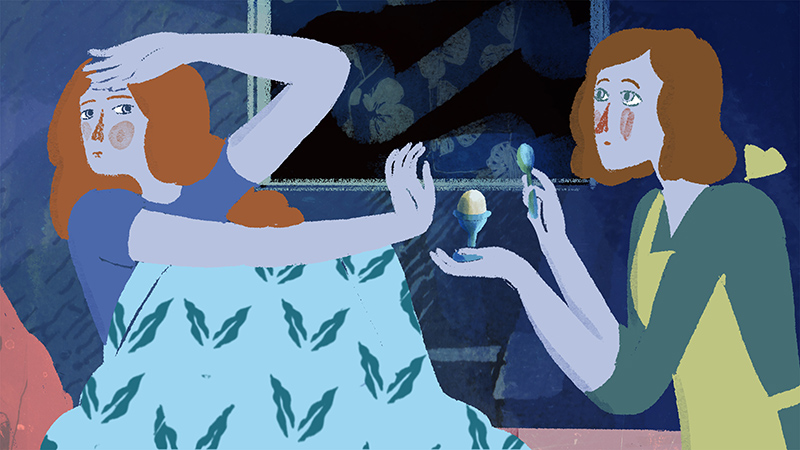A phone call from her daughter a decade ago thrust filmmaker and seasonal resident Susanna Styron into the subject of her new documentary, Out of My Head. Her daughter, Emma Larson, was in Paris studying when she started getting frequent intense migraines that caused partial blindness and throbbing pain. She told her mother that she was suffering and needed to come home early.
Ms. Styron said she was in shock after the call.
“I was really freaked out. She was paralyzed by fear and pain,” she said.
Ms. Styron and her daughter made appointments with neurologists and read everything they could about migraines. The more she dug into the subject, she said, the more she learned just how misunderstood and marginalized sufferers were, including her daughter.
“I started thinking, why don’t I know this about you?” Ms. Styron said. “Why are there so many people I know that suffer from this, and they never talk about it? What’s the secret? Why is this so closeted?”
Her curiosity piqued, Ms. Styron turned on her camera and interviewed Emma about her migraines in 2009. What followed was a nearly decade-long process to create Out of My Head, a documentary featuring extensive interviews with medical experts and migraine sufferers. The film screens on Wednesday, August 8 at the Film Center in Vineyard Haven, with a discussion afterwards with Susanna Styron and producer Jacki Ochs.
Ms. Styron said the biggest surprise for her as she researched the disease was the stigma surrounding it. Since migraines are invisible, she said, sufferers struggle to get people to believe they are in pain. She also noted a gender imbalance: 75 per cent of the 38 million migraine sufferers in the United States are women and migraines are often seen as just a women’s disease.
“I realized how stigmatized it was and how badly I had misunderstood my daughter, and how isolated and despairing people suffering from it feel. It was just so huge,” she said.
To avoid making a jargon-filled medical documentary, Ms. Styron decided to explore the link between migraines and creative minds, often induced by the euphoric relief following a migraine. While filming, she and her producing partner Jacki Ochs traveled to a studio in India to interview a Bollywood dance choreographer and to California to talk with Joan Didion, who in the film reads from her essay In Bed about her experiences with migraines.
One of the most fascinating discoveries, Ms. Styron said, was how migraines influenced the classic children’s story Alice in Wonderland. “When I found out that Lewis Carroll had migraines and Alice in Wonderland was just a long story of a series of migraine symptoms, I was just blown away.”
Though she had enough interview footage and information to fill at 10-hour film, Ms. Styron said that when she got to the editing booth, something was missing. She watched her interviews with Emma again and realized that a narrative throughline was missing, their mother-daughter relationship.
“She was just another character,” she said. “When we did the interview I had her talk to me as if I’m some stranger. But then, as we were editing, I just had this moment where I was like I cannot keep pretending that she is not my daughter. I decided I had to bring my voice into it.”
Her voice, along with Emma’s, appears in the film in animated reenactments.
“We use it as a portal into different subjects, but we also use it to come back to a familiar emotional base. It anchors and drives it [the film],” she said.
Ms. Styron said the journey of making the film was also a learning experience for her in how to parent a child suffering from migraines.
“As a parent, you’re always trying to make everything okay for your children,” she said. “There was really a point where it became clear that not only could I not fix her migraines, but that’s not what she needed from me. She just needed me to be there for her and help her as much as I could. I think that became a very big lesson about parenting in general.”
Ms. Styron’s next project is a documentary on the life of Roxcy Bolton, an American feminist who founded the country’s first rape treatment center and fought against the National Weather Service’s policy of naming storms after women. The subject may be far removed from migraines, but Ms. Styron said it continues her passion for telling neglected stories.
“I don’t go looking for any particular subject,” she’s said. “I just respond when something hits me. I just have to do it. I guess when I feel the story hasn’t been told, it’s interesting.”
As for Out of My Head, Ms. Styron said she hopes it leads viewers to realize the struggle their migraine-suffering family members and colleagues face, and to care for them as best they can.
“I hope they have understanding and compassion for the people in their lives that suffer from it,” she said.






Comments
Comment policy »